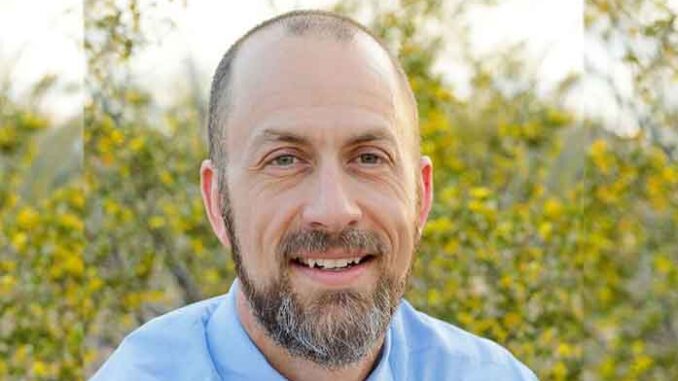
The director of the Arizona Department of Child Safety (DCS) violated state law by adding a man’s name to the state’s database of child abusers even after a hearing judge ruled the complaint against the man was not substantiated.
That is the opinion of the Arizona Court of Appeals against Mike Faust, who took as head of DCS in August 2019. The ruling includes an order that DCS pay the man -identified only as Phillip B.- his attorney’s fees and court costs for prevailing in the case.
“Because the Director’s Decision here does not meet the regulatory requirements for a substantiated finding, there is no legal authority for the Director to enter Phillip B.’s name into the Registry,” Judge D. Steven Williams wrote in the unanimous opinion. “Accordingly, we remand this case and direct DCS to remove Phillip B.’s name from the Registry for the alleged conduct in this appeal.”
Under Arizona Revised Statutes 8-804, DCS maintains a Central Registry of “substantiated” reports of child abuse and neglect. The registry is used as part of a background check for those seeking to become foster parents, adoptive parents, child welfare and childcare workers, as well as employees of group homes, residential treatment centers, homeless shelters, and other care facilities.
Phillip B. worked with children in a variety of capacities for nearly 30 years, including as a caregiver at a juvenile group home from 2010 to 2018. One day in June 2018 he was tasked with trying to calm down a resident who had become “agitated, refused to do chores, and refused to follow instructions given by the caregivers,” according to court records.
For several minutes, Phillip B. had his hand on the youth’s shoulder and was holding onto the boy’s shirt while talking to him. Two other minors and another caregiver witnessed the interaction, with everyone agreeing that the boy’s shirt was ripped at the neck at some point.
Several weeks later, all three minors later gave statements to a DCS caseworker that Phillip B. used his forearm or hand to choke the boy. Phillip B. and the other caregiver adamantly denied the boy was ever choked or had his breathing interfered with.
Court records show a special DCS review team found probable cause that Phillip B. abused the minor based solely on the caseworker’s interviews. The review team proposed adding Phillip B. to the agency’s Central Registry but Phillip B. demanded a hearing to force DCS to demonstrate probable cause for the action.
That hearing was conducted by an Administrative Law Judge, who never heard testimony from the DCS caseworker who interviewed the juveniles. Instead, a review team member testified about what the caseworker’s notes stated.
Phillip B., the other caregiver witness, and the group home manager all testified that the alleged chocking incident did not happen. The manager also testified that when he spoke to the minor soon after the incident the boy never mentioned not being able to breathe.
There was also no evidence that anyone ever saw red marks or bruising on the boy’s neck area.
The Administrative Law Judge’s findings of fact specifically noted the three adult professionals who testified “were credible” and she found no probable cause existed to substantiate the allegation of abuse against Phillip B.
But Faust did not agree with those findings. He deleted the judge’s reference to the credibility of the adults who testified and noted he found the denials of Phillip B. and the adult witness as “unavailing and not supported [by] the evidence.”
Faust ruled the allegation against Phillip B. was in fact substantiated and ordered his name entered in the Central Registry. Phillip B. appealed Faust’s action to the Maricopa County Superior Court, arguing several deficiencies in the process as well as constitutional questions.
And when a superior court judge upheld Faust’s decision, Phillip B. took the matter to the Arizona Court of Appeals.
In the June 14 opinion, the appellate court noted DCS’s own rules only allowed Phillip B.’s name to be added to the registry if the Administrative Law Judge found probable cause existed and the DCS director accepts that decision.
That is not what occurred in this case, Williams wrote.
“The ALJ did not find probable cause following the hearing and the Director did not accept the ALJ decision,” the opinion states. “Thus, the Director’s Decision is not (and could not be) a substantiated finding” under Arizona’s Administrative Code.”
The court of appeals also rejected Faust’s argument that he had discretion to enter Phillip B. into the registry anyway.
“Just because the Director may have authority to accept, reject, or modify an ALJ’s findings does not negate the clear definition of ‘substantiated finding’ promulgated by the Department itself,” Williams wrote. “That definition clearly excludes the circumstance in Phillip B.’s case.”
Faust has until mid-July to petition the Arizona Supreme Court for review of the case. In the meantime, it appears Phillip B.’s name will remain on the registry.

